Functional Medicine Explained: A New Framework for Optimal Wellness
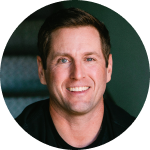

You've probably heard the term "functional medicine" thrown around lately. It's in your podcast feed with Mark Hyman discussing root causes. It's in Peter Attia's discussions about Medicine 3.0. Companies like Function Health are raising millions to bring it the mainstream. But what exactly is functional medicine, and why should you care?
Here's why this matters: if you're one of the millions of people who've been searching for answers, whether it's chronic migraines, unexplained fatigue, mental health struggles, or digestive issues that won't quit, you've probably hit the wall of conventional medicine. You've seen specialists, tried medications, maybe even had surgery, but you're still not better.
That's where functional medicine becomes revolutionary. Because while traditional medicine often stops at "what" (what disease do you have?), functional medicine never stops asking "why" (why did this develop in the first place?).
Defining Functional Medicine (and Medicine 3.0)
Let's clear up any and all confusion. Functional medicine and Medicine 3.0 are related but distinct approaches that are reshaping healthcare.
Functional medicine is about root causes and systems thinking. Instead of treating symptoms in isolation, it looks at your body as an interconnected network. Your gut health affects your brain. Your stress impacts your hormones. Your genetics influence how you process nutrients. Everything connects.
Medicine 3.0, coined by Peter Attia, takes a different angle. It's about being proactive rather than reactive. Where Medicine 2.0 waits for disease to strike, Medicine 3.0 focuses on prevention, optimization, and extending not just lifespan but healthspan, the years you're actually thriving, not just surviving.
At Halo, we believe the future is both. We blend functional medicine's systems approach with Medicine 3.0's prevention focus. We're not just treating disease or preventing it, we're optimizing every aspect of your health across five key areas: longevity, healthspan, cognitive performance, mental and emotional wellness, and physical performance.
This isn't about choosing sides. It's about taking the best of both worlds to create something more powerful than either approach alone.
How Do You Know If It's Done Well?
Here's the uncomfortable truth: not all "functional medicine" is created equal. Some practitioners slap the label on what's essentially expensive supplement sales. Others run every test under the sun without a clear strategy.
Good functional medicine looks like this:
Integration over isolation. Your care team should be connecting dots across every aspect of your health, your genetics, blood work, lifestyle, stress levels, sleep patterns, even your relationships and spiritual life. If someone's only looking at one piece of the puzzle, they're not practicing true functional medicine.
Questions before prescriptions. A good functional practitioner is relentlessly curious. They're asking why your thyroid is struggling, not just prescribing thyroid medication. They're investigating what's triggering your migraines, not just managing the pain.
Data-driven decisions. This isn't about intuition or ideology. It's about objective measurements, comprehensive labs, genetic testing, wearable data, all integrated to reveal patterns a single test might miss.
Here's the reality check, doing this well is almost impossible for a single human brain. The data sets are massive. The interactions are complex. The expertise needed spans dozens of specialties. That's why at Halo, we believe the future requires AI assistance, not to replace human judgment, but to help uncover patterns and connections that would otherwise stay hidden.
The Whole Person Approach
Traditional medicine treats you like a collection of parts. You see a cardiologist for your heart, a neurologist for your brain, a psychiatrist for your mood. But you're not a collection of parts, you're a whole person.
True functional medicine addresses mind, body, and spirit as an integrated system. This isn't woo-woo talk. It's recognition that:
- Your mental state directly impacts your physical health (stress literally changes your gut bacteria)
- Your physical health affects your mental state (inflammation is linked to depression)
- Your spiritual wellbeing, whether that's connection to God, nature, or purpose, influences both
The challenge? Most healthcare is siloed. Your primary doctor doesn't talk to your therapist. Your surgeon doesn't coordinate with your physical therapist. Your psychologist has no idea what medications you're taking. It's like having a team where no one's in the same huddle.
Functional medicine collapses these silos. It creates a single point of reference, a comprehensive view of you, that guides every intervention, whether that's nutrition, movement, supplements, therapy, or medication.
Functional Medicine in Action
So what does this actually look like day to day? Let's get practical.
Start with foundations. At Halo, we believe everyone should begin with three core data streams:
- Genomics: Your permanent blueprint, tested once, valuable forever.
- Longitudinal blood work: Not just one snapshot, but trends over time (ideally 2-4 times per year).
- Wearable data: Real-time insights into sleep, stress, activity, and recovery.
This foundation lets us see how your unique biology responds to everything, food, exercise, stress, supplements, medications.
Layer in targeted diagnostics. As we uncover patterns, we add specific tests to answer specific questions. Gut microbiome analysis if digestive issues persist. Neurotransmitter testing for mood concerns. Hormone panels for energy and metabolism. Full-body scans when prevention becomes paramount.
The key? We add the right diagnostics at the right time to answer the right questions. No fishing expeditions. No unnecessary tests. Just strategic investigation guided by your goals and data.
Create personalized protocols. Your plan might include:
- Nutritional strategies based on your genetics and blood work
- Exercise programs matched to your recovery patterns and goals
- Targeted supplements to address specific deficiencies or genetic variants
- Stress management techniques proven to work for your nervous system type
- Sleep optimization based on your chronotype and lifestyle
Coach, don't just prescribe. Information without implementation is useless. That's why coaching, helping you actually make and sustain changes, is central to functional medicine. It's not enough to know what to do. You need support in doing it.
What Functional Medicine Means at Halo
For us, functional medicine isn't just about avoiding disease. It's about optimization across every dimension of human performance and wellbeing.
When it's working, you don't just "not feel sick", you feel genuinely good. Energetic. Clear-headed. Emotionally balanced. Physically capable. You see it in how you feel, and we see it in your biomarkers, inflammation dropping, hormones balancing, metabolic markers improving.
We track progress across all five pillars:
- Longevity: Are we reducing disease risk and extending lifespan?
- Healthspan: Are you maintaining vitality and function as you age?
- Cognitive performance: Is your brain sharp, focused, and resilient?
- Mental/emotional wellness: Do you feel balanced, optimistic, and emotionally equipped?
- Physical performance: Can your body do what you want it to do?
This is what Medicine 3.0 plus functional medicine looks like in practice. It's comprehensive, data-driven, personalized, and always evolving as we learn more about you and as science advances.
The Future Is Already Here
Let's be crystal clear about something: functional medicine and Medicine 3.0 don't replace traditional medicine. If you break your leg, tear your rotator cuff, or need your appendix removed, Medicine 2.0 is excellent at fixing those acute problems.
But functional medicine adds the ownership layer. the comprehensive view that lets you guide your entire care team intelligently, whether that's surgeons, psychiatrists, coaches, or nutritionists. You become the CEO of your health, with the data and insights to make informed decisions.
This isn't a trend. It's a fundamental shift in how we think about health. We're moving from reactive to proactive, from fragmented to integrated, from one-size-fits-all to deeply personalized.
The tools are here. The science is advancing daily. The only question is whether you're ready to take ownership of your health in a way that wasn't possible even five years ago.
Your body is already an incredibly complex system doing millions of things right every second. Functional medicine is simply about understanding that system better, supporting it more intelligently, and optimizing it for the life you want to live.
Welcome to healthcare that finally treats you like the complex, interconnected, unique individual you actually are. Welcome to Medicine 3.0. Welcome to the future of health.


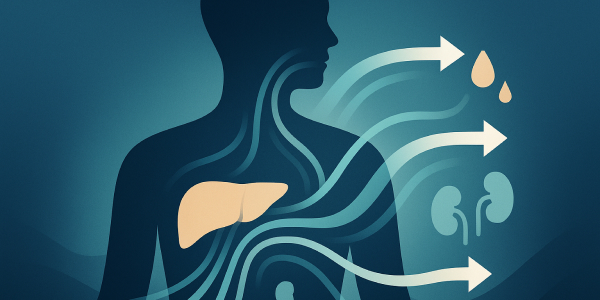
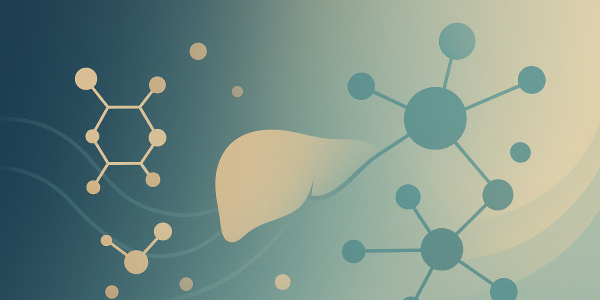


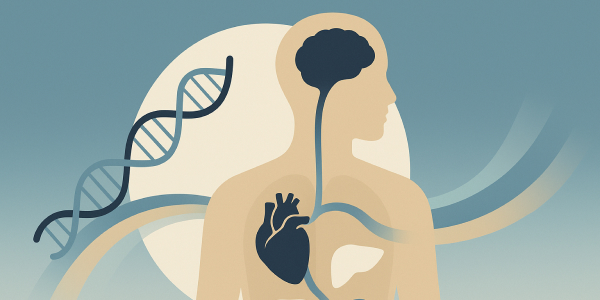
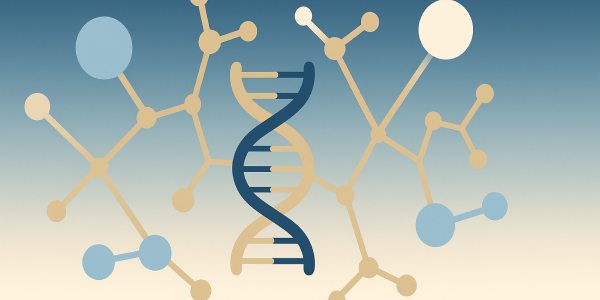

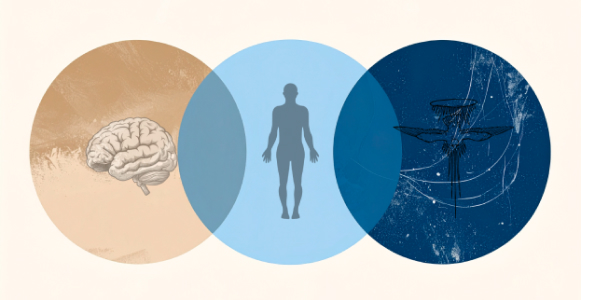
.svg)